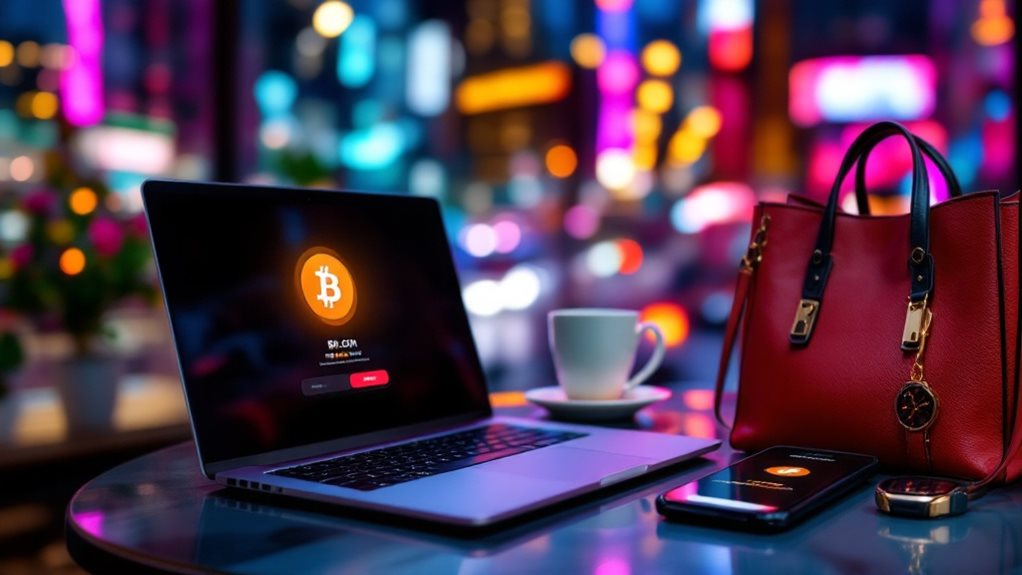Bitcoin can be used to purchase a wide variety of goods and services today. Major retailers like Overstock.com and Newegg accept it for electronics, furniture, and clothing. Digital products from Microsoft, travel bookings through Expedia, and food from restaurants like Domino's are available with Bitcoin. It's even possible to buy luxury items, real estate, and make charitable donations. The cryptocurrency's growing acceptance spans multiple sectors with diverse spending options.

As Bitcoin continues to gain mainstream acceptance, shoppers can now use their digital currency to buy an impressive variety of goods and services. Online retailers have embraced cryptocurrency payments, with major platforms like Newegg offering electronics, computers, and accessories. Overstock.com lets customers purchase furniture, home goods, and clothing with Bitcoin, while Etsy's marketplace includes sellers who accept cryptocurrency for their handmade and vintage items. Hardware enthusiasts can purchase building materials and supplies from Home Depot, which accepts Bitcoin via Flexa. Shoppers can easily obtain popular gadgets like iPhones with BitPay through gift card purchases. The system operates with a fixed supply of 21 million coins, making it an attractive store of value for investors. The decentralized network eliminates intermediaries, resulting in significantly lower transaction fees for purchases.
The Microsoft Store accepts Bitcoin for digital products and Xbox content, and shoppers can buy gift cards for major retailers through services like Bitrefill and Coincards.
Travel enthusiasts can use Bitcoin to book accommodations through Expedia and flights with AirBaltic. For those seeking luxury travel experiences, companies like Denison Yachting accept Bitcoin for yacht and boat rentals, while Fast Private Jet and Simply Jet allow customers to charter private aircraft. Travelers can even purchase travel insurance using cryptocurrency through providers like Insuremytrip.
Food and beverage options for Bitcoin users have expanded considerably. People can order pizza from popular chains like Domino's using Bitcoin-loaded gift cards, and some Starbucks locations accept cryptocurrency payments. Bitcoin-loaded debit cards make grocery shopping possible, and numerous restaurants worldwide now accept direct Bitcoin payments.
Food delivery services like Takeaway.com have also joined the cryptocurrency movement, making it easier for people to order meals from home.
The luxury market has embraced Bitcoin, with high-end fashion brands like Gucci and Balenciaga accepting cryptocurrency payments. Real estate properties in various countries can be purchased with Bitcoin, opening new opportunities for international property investment.
While Tesla previously accepted Bitcoin for vehicle purchases, other automotive retailers have started exploring cryptocurrency payments. Professional service providers, including legal firms, have begun accepting Bitcoin as payment for their services.
Bitcoin's reach extends beyond commercial transactions, as many charitable organizations now accept cryptocurrency donations. This allows donors to support causes worldwide using their digital currency.
The growing acceptance of Bitcoin across different sectors shows how cryptocurrency is becoming an increasingly practical payment method for everyday purchases, luxury items, and vital services. From buying a cup of coffee to chartering a private jet or purchasing property, Bitcoin users now have access to a diverse range of products and services that rival traditional payment methods.
Frequently Asked Questions
How Do I Store Bitcoins Safely?
Bitcoin owners can store their crypto in three main ways.
Hardware wallets are physical devices that keep Bitcoin offline and are considered the safest option.
Software wallets are digital apps connected to the internet, making them convenient for everyday use.
Paper wallets are printed documents with crypto keys, though they're less common now.
Many people use both hardware wallets for long-term storage and software wallets for regular transactions.
What Happens if I Lose My Bitcoin Wallet Password?
If someone loses their Bitcoin wallet password, they can't access their funds. There's no "forgot password" button or customer service to help reset it.
If they have their wallet's recovery phrase (a list of special words), they can use it to regain access. Without the password or recovery phrase, the bitcoins are likely lost forever.
Some people try password recovery tools or hire specialists, but success isn't guaranteed.
Are Bitcoin Transactions Completely Anonymous?
Bitcoin transactions aren't completely anonymous.
They're pseudonymous, meaning they use unique addresses instead of real names. While the blockchain doesn't show who owns these addresses, transactions can be traced through various means.
Exchange accounts, IP addresses, and blockchain analysis tools can help link transactions to real people.
That's why some users try to increase their privacy using methods like coin mixing or multiple addresses, though full anonymity isn't guaranteed.
Can I Convert Bitcoins Back to Regular Money?
Yes, Bitcoin can be converted back to regular money through several methods.
Cryptocurrency exchanges like Coinbase let users sell Bitcoin for traditional currencies.
Bitcoin debit cards automatically convert crypto when making purchases.
P2P platforms allow direct trading between buyers and sellers.
Bitcoin ATMs provide cash withdrawals in many locations.
Each method has its own process and verification requirements, but converting Bitcoin to regular money is a common practice.
What Are the Tax Implications of Buying and Selling With Bitcoin?
The IRS treats Bitcoin like property, not money.
Every time someone buys, sells, trades, or uses Bitcoin, it's a taxable event. If they sell Bitcoin for more than they paid, they'll owe taxes on the profit.
The tax rate depends on how long they held the Bitcoin. Short-term gains (under a year) are taxed like regular income, while long-term gains (over a year) usually have lower rates.





